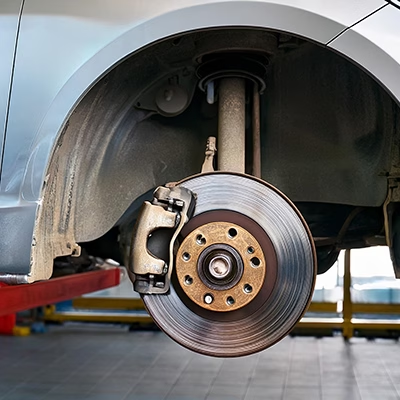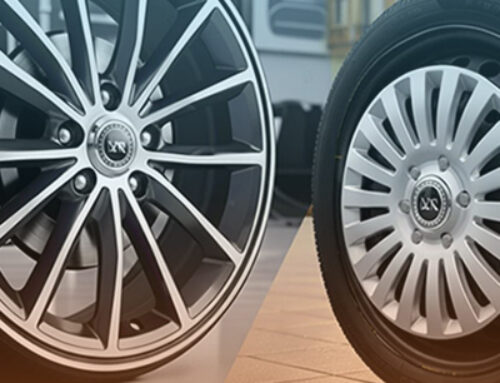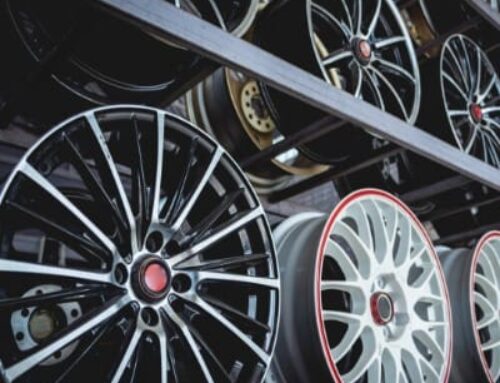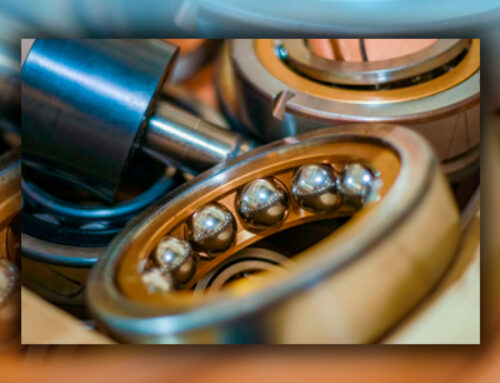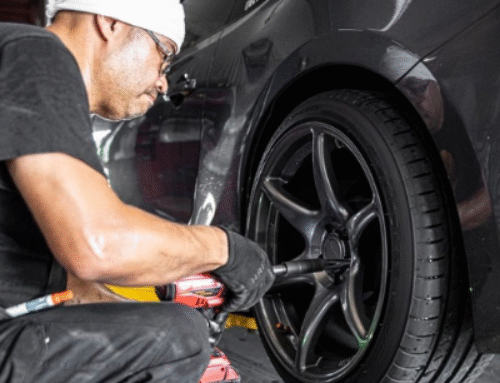Can a Pothole Damage a Wheel Bearing?
Potholes are more than just a bump in the road—they can be a serious threat to your vehicle’s suspension and steering systems. Most drivers are aware that a pothole can damage tires and rims, but few realize it can also affect deeper components, such as the wheel bearing.
Can a pothole damage a wheel bearing? The short answer is yes. In this article, we’ll explore how potholes can lead to wheel bearing problems, what symptoms to watch for, and how to prevent long-term damage.
What Is a Wheel Bearing and What Does It Do?
A wheel bearing is a set of steel balls or tapered rollers held together by a metal ring, called a race. It fits tightly inside the hub, which is the central part of the wheel that connects to the axle.
Key Functions:
- Allows smooth rotation of the wheel with minimal friction.
- Supports the vehicle’s weight.
- Works with the suspension and steering systems to ensure stable and precise control.
Location:
Wheel bearings are located at each wheel hub and are sealed to keep out dirt and moisture. They’re essential in both front and rear wheels, though front wheel bearing failure is often more noticeable due to its effect on steering.
Types:
- Ball Bearings (most common in passenger cars)
- Tapered Roller Bearings (used in trucks and heavier vehicles)
- Precision Ball Bearings (found in performance vehicles)
Can a Pothole Damage a Wheel Bearing?
Yes, a pothole can damage a wheel bearing. While bearings are built to withstand normal road stress, the sudden impact of a pothole can transfer a high amount of force through the wheel and into the bearing.
How Does It Happen?
When your tire hits a pothole, especially at high speed, the jolt compresses the suspension and sends shockwaves through the hub assembly. This abrupt stress can:
- Crack or deform the bearing race.
- Cause the bearing balls or rollers to develop flat spots.
- Dislodge protective seals, allowing dirt and moisture to enter.
Pothole vs. Other Types of Damage:

Symptoms of a Wheel Bearing Damaged by a Pothole
If you suspect pothole wheel damage, keep an eye (and ear) out for these common symptoms of bad wheel bearing:
- Noise from wheel bearing: Humming, grinding, or growling sounds that increase with speed.
- Steering wheel vibrations, especially at higher speeds.
- Pulling to one side while driving.
- Uneven tire wear.
- ABS warning light or other dashboard alerts.
These symptoms might not appear immediately, but they will become more noticeable over time if not addressed.
What Happens If You Don’t Fix a Damaged Wheel Bearing?
Ignoring wheel bearing problems can lead to serious safety and financial consequences:
- Increased stress on the hub and axle.
- Risk of wheel detachment while driving.
- Higher repair costs as other components become affected.
- Possible accidents due to wheel or brake failure.
How Is Wheel Bearing Damage Diagnosed?
A professional mechanic can identify wheel bearing damage using several methods:
- Lifting the vehicle to manually check wheel play.
- Spinning the wheel to listen for unusual noises.
- Using diagnostic tools to check ABS sensors.
- Inspecting for seal damage or grease leakage.
How Much Does It Cost to Repair a Damaged Wheel Bearing?
Repair costs can vary depending on the vehicle and location.
Time Required:
Most bearing replacements take 1 to 2 hours in a qualified auto shop. It’s best to go to a shop experienced in suspension systems to avoid misdiagnosis.
How to Prevent Wheel Bearing Damage from Potholes
While you can’t always avoid potholes, you can minimize the risk of wheel bearing damage with a few preventive measures:
- Slow down in areas known for poor road conditions.
- Avoid puddles that may hide deep potholes.
- Maintain proper tire pressure to absorb shocks.
- Get regular alignments and suspension checks.
- Have bearings inspected during routine maintenance.
Frequently Asked Questions (FAQs)
✅ Can a pothole damage a wheel bearing?
➡️ Yes. A severe pothole impact can cause internal damage to the wheel bearing, leading to noise and unsafe driving conditions.
✅ Is it safe to drive with a bad wheel bearing?
➡️ No. Driving with a damaged bearing can result in wheel failure or an accident.
✅ What other parts can get damaged by a pothole?
➡️ Aside from the bearing, potholes can damage tires, rims, control arms, shocks, and struts.
✅ Can I replace a wheel bearing myself?
➡️ It’s possible for skilled DIYers with the right tools, but due to the complexity, it’s recommended to have a professional do it.
✅ How long will a damaged bearing last after hitting a pothole?
➡️ It depends on the severity, but once symptoms appear, it should be addressed immediately to avoid failure.
So, can a pothole damage a wheel bearing? Absolutely. Potholes pose a real threat to your vehicle’s suspension and steering systems, and wheel bearings are no exception. If you hear unusual noises, feel vibrations, or notice uneven tire wear, don’t ignore it.
Curious about what other types of damage a pothole can cause besides a wheel bearing?
Potholes are notorious for damaging various parts of your vehicle, from tires to suspension components. To find out what the most common pothole-related damage is, check out our related article: What is the Most Common Damage from a Pothole?

